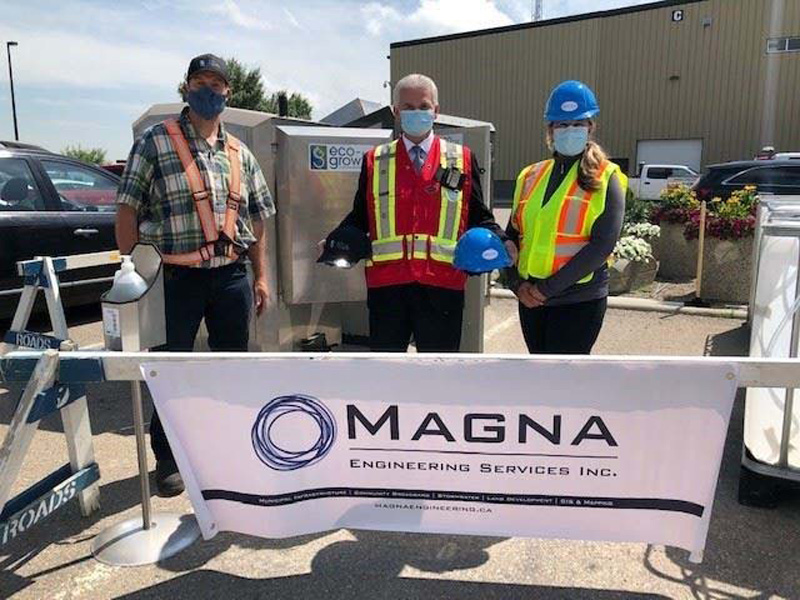The City of Chestermere has partnered with MAGNA Engineering and Eco-Growth Environmental Inc., to pilot a green approach to treat sewage through engineered wetlands and dehydration technology.
Sewer treatment in North America is done through large scale, chemical-based processes. However, MAGNA Engineering and Eco-Growth Environmental Inc., are looking to change the industry standard.
“In Chestermere, we are all about seeking to be and do amazing things,” said Mayor Marshall Chalmers.
“For that reason, we are very happy to partner with MAGNA Engineering and Eco-Growth Environmental Inc. to find new, environmentally sustainable ways to handle municipal waste as well as support local business initiatives. We are hopeful that upon a successful pilot, we can help set new standards for environmental stewardship in municipalities across Canada,” Chalmers added.
The pilot program will take place at the City’s Public Works building. Previously, the building’s sewage was flushed into a septic tank and then transported for treatment.
However, with the new system, treatment is completed onsite, beginning with the separation of liquids and solids through a micro-screening process.
The liquid passes through a set of sub-surface wetlands that treat the liquid waste to raw water quality that can be safely released to the natural environment or safely re-used as a raw water source for irrigation, or process water.

The solid waste is then dehydrated by Eco-Growth Environmental’s Eco-Growth Organic Reactors that remove moisture, kill pathogens, and reduce odour.
The dried biosolids can then be introduced as a heat source in the Eco-Boiler, which reduces the material to ash, and can be used as fertilizer or a component in road building material.
“We all have energy coming out of our butts. Our vision is to put that to use. Our innovative technology transforms raw, organic waste into biofuel so communities can get the most out of their waste,” said the Vice President and Director of Eco-Growth Environmental, Glen Smith.
“The hope is that a successful pilot project of converting human waste into fuel would mean that we can start to change how the world deals with biosolids, and that Alberta can be a leader in green technology,” he said.
Adding, “That would mean reducing the burden on the tax base, finding sustainable ways to power and heat community facilities, reducing waste going to landfills and creating a new revenue source for the community.”
Regular water samples will be collected and tested by a third party to determine the new system’s efficiency and effectiveness.
“In Europe, small communities have been using engineered wetlands to treat wastewater since the 1920s, but the technology has not been widely adopted across North America. We are changing that trend,” said the Owner of MAGNA Engineering, Jennifer
Massig.
Adding, “Municipalities across Alberta are searching for a better wastewater treatment solution that keeps operation simple but results in high quality treated water. Better treatment means that our rivers and lake stay cleaner, which keeps our communities safe.”
The pilot project in Chestermere is expected to be operational on Sept. 10 until December 2020.
The system will then be reviewed, and any revisions will be made for larger-scale projects and testing.








